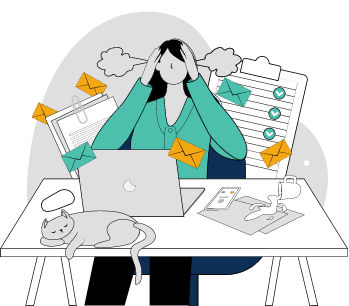Listen to this episode
On this episode
Many of us spend most of our days within the four walls of our home and workplace. With everything we have to do, it seems challenging to set aside a few minutes out of our indoor spaces. But when you find the time to connect with nature, you might discover new perspectives and insights into your life.
Henri Stevenson joins us to talk about the ways connecting with nature can shift our thinking and open up new solutions. We discuss the differences in our thoughts and feelings when we’re in nature versus within artificial walls. She shares her stories of finding metaphors for life situations reflected in nature and what she learned from them. Henri reminds us that sometimes, the solutions to our problems may show up in quiet spaces when we take a few moments to connect with nature.
Curious about how to take time to learn and connect with nature? Learn how and much more when you tune into this episode!
Show links
Henri is also running a one-day thinking nature retreat in Hertfordshire this July.
Join us in connecting with nature during our September Retreat. Reserve your place here.
Beat stress and work happier with the Shapes Toolkit. Use the toolkit with your team by joining the Resilient Team Academy.
Find out more about Henri Stevenson on her website
Wanderful: Human Navigation for a Complex World by David Pearl
Podcast Street Wisdom by David Pearl
k It: The Ultimate Spiritual Way_](https://www.goodreads.com/book/show/4837266-f-k-it)
Birds songs from the RSPB Nature Reserve
<a href=”https://youarenotafrog.com/episode-117/”…
Reasons to listen
- Find out the importance of taking some time to relax and take your thoughts on a walk.
- Learn to connect with nature in a way that fits your life (even if you only have 5 minutes!).
- Discover different perspectives on your life with the help of nature.
Episode highlights
How Henri Learned to Connect With Nature
Stepping Out of the House and Office
Bringing Your Thoughts Into Nature
Life Lessons From Nature
The Seasons of Life and Nature
Finding Meanings
Learning in Relaxation
The Outside VS Office Perspective
Where to Connect with Nature
Setting Aside Time for Walk
A Long Retreat Into Nature
Henri’s Final Advice
Episode transcript
Rachel Morris: This is a You are Not a Frog Quick Dip, a tiny taster of the kinds of things we talk about on our full podcast episodes. I’ve chosen today’s topic to give you a helpful boost in the time it takes to have a cup of tea, so you can return to whatever else you’re up to feeling energised and inspired. For more tools, tips and insights to help you thrive at work, don’t forget to subscribe to You are Not a Frog wherever you get your podcasts. This Quick Dip episode, I’m going to talk about how…










